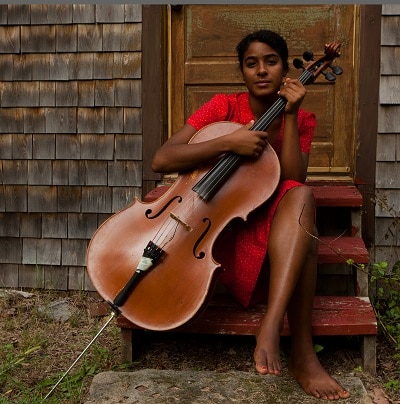I’ll have to admit, as great 2014 was on a personal level, it was a really hard year for me witnessing the violence against our women and men of color. The needless deaths at the hands of law enforcement broke my heart and I couldn’t figure out a way to properly express myself — being the only girl I have a tendency to go right for the jugular during a debate, it’s how I survived having two older brothers. Also, how can one really talk about a subject that is so insane you can’t wrap your head around it? So, I looked towards music to help quiet my always busy brain.
This list is presented by Kristin from Black Girl Nerds
Leyla McCalla
I’m a fan of the Carolina Chocolate Drops. I love how this group of young people have embraced the history of American music and made it accessible to all audiences. When I saw them live a couple of years ago I learned about Leyla McCalla — her personal story is phenomenal — and fell in love with her style. The night they announced the grand jury wasn’t going to indict the officers for the death of Eric Garner I was at The Hamilton Live in DC to see her. Last year, Leyla released “Vari-colored Songs: A Tribute to Langston Hughes,” a solo album which put some of Hughes’ poetry to music. I needed this — her beautiful voice and Hughes’ beautiful prose shut out all the anger and horrific comments I had been reading via social media. At one point during her performance, Leyla explained that she wasn’t planning on performing “Song for a Dark Girl,” but felt the need to in the memory of Michael Brown. After scattered applause, the venue fell silent, which is kinda hard considering there are two bars in it. Such a quiet, yet powerful song. By the time she finished I was hiding my face from a coworker and his wife who were sitting next to me as tears were falling.



